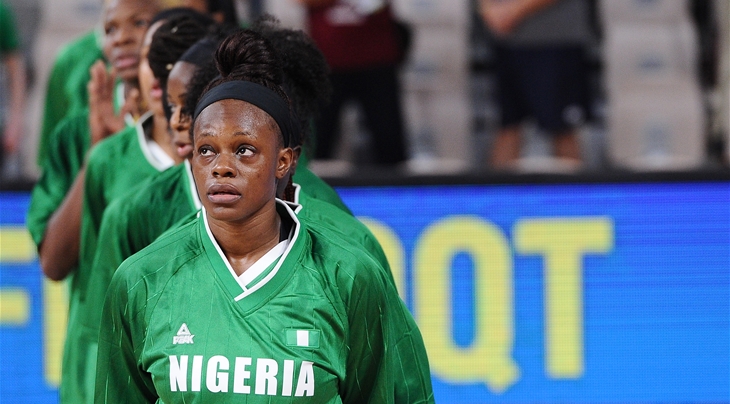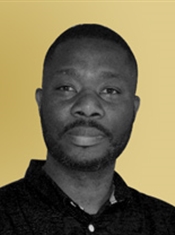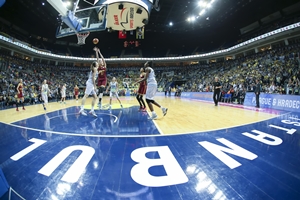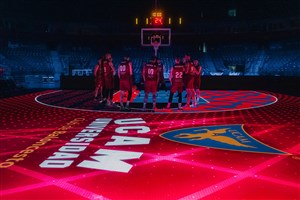
Nigeria take away valuable lessons from WOQT
SHEFFIELD (Julio Chitunda's African Message) - Nigeria may have fallen short of reaching the Rio Olympics, but the Western Africans have taken valuable lessons from the 2016 FIBA Women’s Olympic Qualifying Tournament (WOQT) last week in Nantes, France.
In a matter of three days, their hopes of reaching the Olympics were turned upside down as never seen before in the history of the tournament.
They went from being on the brink of elimination - following their Group C opener defeat against Belarus - to give themselves a chance thanks to an incredible win against Korea, although they ultimately got knocked off from Rio Olympics race when they least expected.
As the Nigerians enjoyed a day off after playing two games in as many days, and as they looked to be gearing up for a potential Quarter-Final clash against Spain, Korea were fighting for their own WOQT survival on the court by beating a taller, although slower, Belarus team.
Perhaps in the biggest upset of the tournament, Korea prevailed 66-65, and as a result, the Nigerians were left to feel unfairly eliminated from the WOQT.
Korea upset Belarus! Both teams advance to #FIBAOQT Quarter-Finals! Nigeria is out.
— FIBA (@FIBA) June 15, 2016
📊 https://t.co/W4Fmz8AIr9 pic.twitter.com/OvetdqrTlX
Surely the Nigerians will never understand why Belarus gave up fighting against Korea when they trailed by one with 2:20 minutes left. But Belarus head coach Anatoli Busayak had an explanation after the game.
"It's not as if we didn't want to win the game. But, in the last two minutes of the game I had a thought of not to force an overtime," he said through Tatyana Troina who interpreted the press conference.
In the end, Scott Nnaji's team returned home with a 1-1 mark and a sense of unlucky.
The WOQT not only caused disappointment among Nigerian players, official and fans, but it also taught everyone a lesson. In normal circumstances, one win in the Group Phase would be good enough to advance to the Quarter-Finals. Four teams - including China, Argentina, Cuba, and Korea - moved on with a 1-1 mark, but the goal differential proved costly to Nigeria as they lost to Belarus 71-60.
Prior to the WOQT, I was asked: "Which five WOQT teams will reach Rio 2016?"
Having spoken to Nigerian players and coaching staff prior to the 12-team tournament in Nantes and before their preparations, they seemed so confident that I felt I had to believe in them, and I gave them my vote.
Like my fellow columnists Paul Nilsen and Jeff Taylor, I picked hosts France, Spain, Turkey and China. Although I chose Nigeria over Belarus to complete the Rio-bound quintet , Taylor and Nilsen got it right to stick with the Belarus.
At the time, my argument was that "a combination of a talented roster - led by Adaora Elonu - and the sense of desperation to win and reach Rio that makes this Nigeria team a threat."
That sense of desperation became evident as Nigeria not only gave Belarus some hard time in the first three quarters of their Group Phase encounter, but they also stunned Korea in the waning seconds of the game thanks to a three-pointer from Ezinne Kalu.
Despite winning one game and losing another one in Group Phase, Nigeria's numbers indicate a need for improvement in three-point shooting (22 percent) as well as ball movement as they averaged only 12.5 assists per contest. France, Turkey and Spain had at least 22.5 assists per contest.
I know it's senseless now discussing the outcome of the WOQT, but I still feel that a Fifth-Place Game between Nigeria and Belarus would have got my prediction right.
But Nigeria's biggest WOQT lesson should be about perimeter defense. A team dreaming big can never allow a record 14-three-pointers as they did against Korea..
Julio Chitunda
FIBA
FIBA's columnists write on a wide range of topics relating to basketball that are of interest to them. The opinions they express are their own and in no way reflect those of FIBA.
FIBA takes no responsibility and gives no guarantees, warranties or representations, implied or otherwise, for the content or accuracy of the content and opinion expressed in the above article.

















